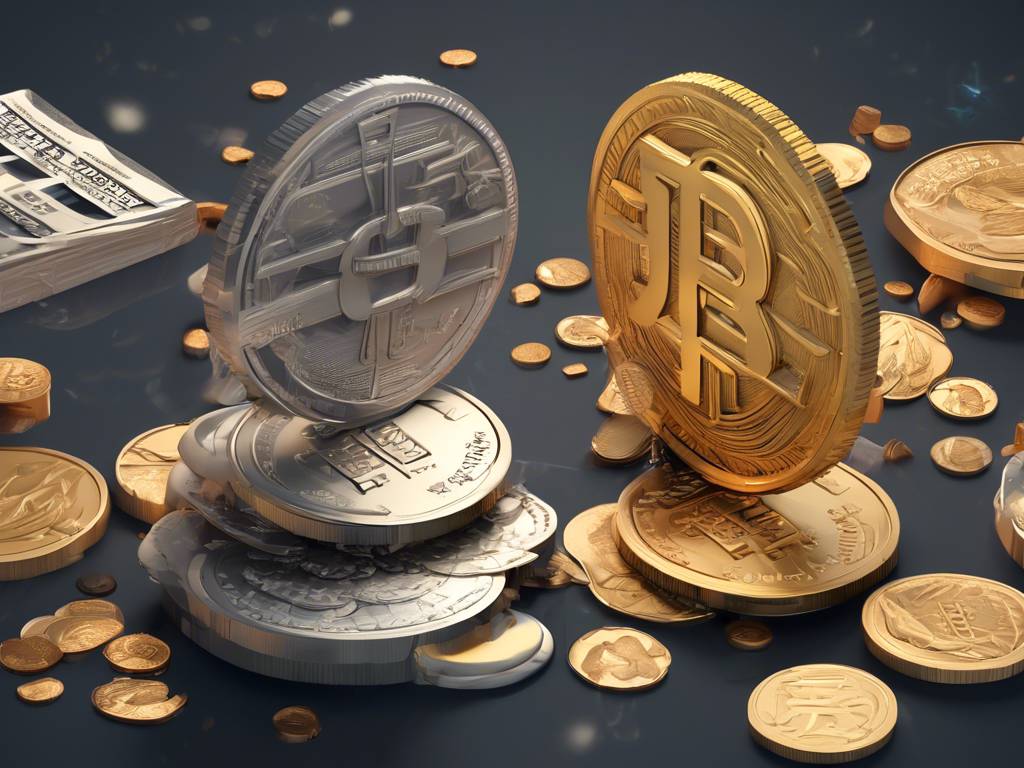Sui Coin vs. Traditional Banking: Comparing the Advantages and Disadvantages
Welcome to the world of cryptocurrency, where groundbreaking digital currencies like Sui Coin are challenging the dominance of traditional banking systems. In this article, we will explore the advantages and disadvantages of Sui Coin in comparison to traditional banking. So, if you’ve ever wondered how this new form of currency stacks up against the old ways of managing money, keep reading!
Advantages of Sui Coin
1. Decentralization: Unlike traditional banking systems that are controlled by centralized authorities, Sui Coin operates on a decentralized network known as blockchain. This means that no single entity has complete control over your funds. With Sui Coin, you become your own bank, giving you greater autonomy over your finances.
2. Enhanced Security: Traditional banks are susceptible to hacking, fraud, and identity theft. With Sui Coin, transactions are secured through complex cryptography, making it extremely difficult for hackers to gain access to your funds. Additionally, the use of blockchain technology ensures transparent and tamper-proof transactions.
3. Global Accessibility: Traditional banking systems often limit access based on geographical boundaries and require extensive paperwork for cross-border transactions. However, with Sui Coin, you can send and receive money globally within minutes without any intermediaries or bureaucratic hurdles.
4. Lower Transaction Fees: When it comes to traditional banking, hefty transaction fees can quickly eat into your hard-earned money. Sui Coin transactions have significantly lower fees due to the absence of intermediaries such as banks or payment processors. This makes it an attractive option for individuals looking to save money on transaction costs.
Disadvantages of Sui Coin
1. Volatility: Cryptocurrencies, including Sui Coin, are known for their price volatility. The value of Sui Coin can fluctuate wildly within a short period. While this volatility can present lucrative investment opportunities, it also carries the risk of substantial financial losses.
2. Limited Acceptance: While the popularity of cryptocurrencies is growing, they are not yet universally accepted as a form of payment. Unlike traditional banking systems, where you can use your debit or credit card almost anywhere, finding merchants who accept Sui Coin can be challenging.
3. Lack of Regulation: Traditional banks are subject to strict regulations imposed by governments and financial authorities to protect consumers. In contrast, the cryptocurrency market remains largely unregulated. This lack of regulation can make it difficult to resolve disputes and may expose users to potential scams or fraudulent activities.
4. Technical Knowledge: Using Sui Coin requires a certain level of technical knowledge and understanding of blockchain technology. For individuals who are not tech-savvy, getting started with cryptocurrencies can be intimidating and may pose a steep learning curve.
Sui Coin vs. Traditional Banking: Which One Is Right for You?
Now that we have examined the advantages and disadvantages of Sui Coin in comparison to traditional banking, it’s time to consider which option is right for you.
If you value autonomy, enhanced security, global accessibility, and lower transaction fees, then Sui Coin may be the perfect fit for you. However, if stability, widespread acceptance, regulatory protection, and ease of use are more important to you, sticking with traditional banking might be the better choice.
Ultimately, the decision between Sui Coin and traditional banking depends on your personal preferences and circumstances. It is crucial to carefully evaluate the pros and cons of each option before making a decision.
Frequently Asked Questions
1. Can I use Sui Coin for everyday purchases?
While the acceptance of Sui Coin is growing, it is not yet widely accepted for everyday purchases. However, some online merchants and businesses are starting to embrace cryptocurrencies as a payment option.
2. How can I ensure the security of my Sui Coin?
To ensure the security of your Sui Coin, it is essential to follow best practices such as using a secure wallet, enabling two-factor authentication, and keeping your private keys safe and confidential.
3. What happens if I lose access to my Sui Coin?
If you lose access to your Sui Coin wallet or forget your private keys, it may be challenging or impossible to recover your funds. Therefore, it is crucial to keep backups and take necessary precautions to avoid losing access to your wallet.
4. Can I convert my Sui Coin into traditional currency?
Yes, you can convert your Sui Coin into traditional currency through cryptocurrency exchanges. These exchanges allow you to sell your Sui Coin and receive funds directly in your bank account.
In conclusion, while Sui Coin offers numerous advantages such as decentralization, enhanced security, global accessibility, and lower transaction fees, it also comes with disadvantages like volatility, limited acceptance, lack of regulation, and technical complexity. Consider these factors carefully and choose the option that aligns with your individual needs and preferences.





 By
By



 By
By
 By
By